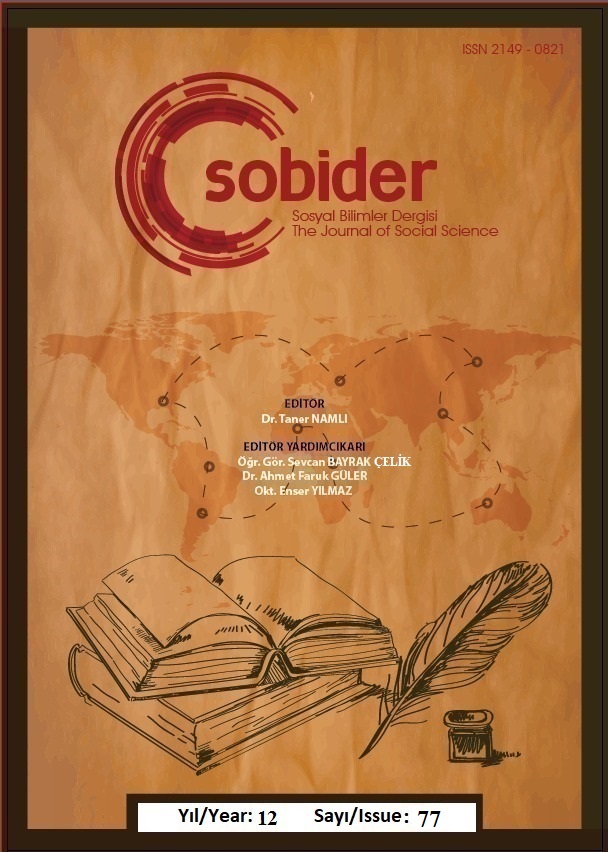KUR’ÂN TEFSİRİNDE ZİHİN HARİTASI KULLANIMI: KUR’ÂN SÛRELERİ ÜZERİNDEN TEMATİK VE GÖRSEL BİR YORUM DENEMESİ
Author :
Abstract
Tefsir ilmi; Kur’an ayetlerinin derinliğini, bağlamsal ilişkilerini ve evrensel mesajını yorumlamayı amaçlayan köklü bir disiplindir. Bu çalışma, modern bir öğrenme tekniği olan zihin haritasının tefsir alanında nasıl işlevsel hale getirilebileceğini hem kuramsal hem de uygulamalı yönleriyle ele almıştır. Özellikle Bakara, Meryem ve Kehf sureleri üzerinde yapılan analizlerde, bu yöntemin surelerin ana temalarını belirlemede, ayet grupları arasındaki ilişkileri kavramada, kavram ağlarını görselleştirmede ve nazm yapısını ortaya çıkarmada etkili bir yöntem olduğu görülmüştür. Zihin haritaları, tefsir eğitimi ve hafızlık süreçlerinde pedagojik bir araç olarak değerlendirilmektedir. Bu teknik, Kur'an'ın daha bütüncül, kavramsal ve kalıcı bir şekilde anlaşılmasına katkı sağlayan alternatif bir yorumlama aracı olarak öne çıkmaktadır. Bu yönüyle, geleneksel tefsir metodolojisini desteklerken, güncel bir okuma biçimi sunar. Zihin haritaları, sadece görsel bir sunum değil, anlamı keşfetmenin yapısal bir yöntemi haline gelebilir. Sonuçta, zihin haritası tekniği, Kur’ân’ın anlaşılmasında hem bütüncül hem de kalıcı bir bakış açısı sağlayan; geleneksel yöntemleri destekleyen, yenilikçi bir yorumlama aracı olarak ön plana çıkmaktadır.
Keywords
Abstract
Tafsir is a well-established discipline that aims to interpret the depth, contextual connections, and universal message of the Qur'anic verses. This study addresses how mind mapping, a modern learning technique, can be applied effectively in the field of tafsir, examining both its theoretical and practical aspects. In particular, analyses conducted on the surahs of Al-Baqarah, Maryam, and Al-Kahf have shown that this method is effective in identifying the main themes of the surahs, understanding the relationships between groups of verses, visualizing concept networks, and revealing the structural coherence (nazm) of the text. Mind maps are considered a pedagogical tool in tafsir education and the process of Qur'anic memorization (hifz). This technique stands out as an alternative interpretive tool that contributes to a more holistic, conceptual, and lasting understanding of the Qur'an. In this respect, while supporting traditional tafsir methodology, it also offers a contemporary reading approach. Mind maps can become not only a visual presentation, but also a structural method of discovering meaning. Ultimately, the mind mapping technique emerges as an innovative interpretive tool that provides both a holistic and lasting perspective in understanding the Qur'an, complementing traditional methods.





